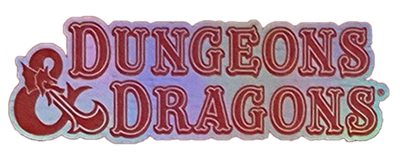The game is heavily based on the ideas of the http://dungeons.wikia.com/wiki/Grim-N-Gritty_(3.5e_Sourcebook) system originally penned by Kenneth S. Hood. In addition, the magic system is game world specific and many classes are house-ruled. Familiarizing yourself with the broader changes of the rules for this campaign setting before starting a character is a good idea.
Books Used[]
Player's Handbook, Player's Handbook II, Dungeon Master's Guide, Dungeon Master's Guide II, Complete series, Races of series, Magic Item Compendium, Spell Compendium, Tome of Battle (feats only), Frostburn, Stormwrack and Sandstorm. Parts of other books and online enhancements may be used in part on a case by case basis.
Generating Abilities[]
Unlike most games, races in this world do not have bonuses and penalties to their starting Abilities. Instead, when you choose a race, you have a range certain stats must be in in order to qualify. To determine the range for any race, look at their usual Ability Adjustments. If the adjustment is a bonus, add the number to 11; this becomes the beginning minimum. If the adjustment is a penalty, subtract the number from 15; this becomes the beginning maximum.
For instance, let's say you wanted to make an elf. Elves normally have a +2 to Dexterity and a -2 to Constitution. Therefor your new elf must have at least a 13 Dexterity and your Constitution can begin no higher than 13. Half-orcs normally have a +2 Strength and -2 to Intelligence and Charisma. New half-orcs must have a minimum of 13 Strength and cannot start with more than a 13 Intelligence or Charisma.
Point Buy[]
Player characters generate ability scores using the Standard Point Buy from the Dungeon Master's Guide (page 169). While most NPCs will start with considerably less, player characters are heroes and so may spend 32 points.
If you do not have access to the Dungeon Master's Guide (which is not OGC and may not be reprinted) or another source that provides the chart, you may use the following scores in any order you choose: 16, 15, 14, 13, 10, 9
Races[]
Many stock races that players think they know are defined differently in this setting. Some examples are:
- Orcs are subterranean versions of ogres. (Fun fact: Wikipedia says "orc" is an old English word meaning demon, giant or ogre.)
- Ogres are not small giants but large goblins. (Not that you can play one.)
- Dwarves are "dark elves", meaning they're elves that dwell in the dark.
- Goblins and elves of all kinds are fairy folk. Fairies are immortal spirits rather than races of mortal folk. Killing their physical form only inconveniences them until they can manifest again.
In this setting, all player characters are human, though there are regional variations. The nonhuman races in the Player's Handbook represent humans that have strong supernatural traits handed down from fairy-blooded ancestors. All are technically human, however.
You may not play races with a level adjustment. Non-level adjusted versions of some commonly playable races may be created.
Classes[]
A number of house rules alter the way some classes work, but they pretty much stand as is. You should read the section on Magic carefully before you choose a magic using class, however.
==Equipment In this setting, silver is the primary coin of trade. Vast wealth is not usually found in great piles of coin but in land, livestock and the like. Permanent magic items are quite rare and are seldom available for sale at any price. Single use items like potions and scrolls are quite common however and much easier to produce.
Alignment[]
Alignment is a trait of supernatural beings such as fairy folk, demons and divinities. Most mortals, including humans in all of their variety, are neutral and have no Alignment. A human may gain an Alignment at some point, but that requires certain rare circumstances to be met, such as losing their soul.
Skills[]
In addition to increasing the number of Skill Points for some classes, a few skills have been collapsed into new skills with broader coverage. Many skills are now Everyman skills, meaning any character can take them.
The new, broader skills may have multiple sub-skills under the new heading. while some use the same Ability Modifiers for all of it's sub-skills, others may have different ones, depending on the skill it was drawn from.
If your race, class or prestige class has a bonus to a skill that is now part of broader skill, the bonus is applied to the individual sub-skill only.
